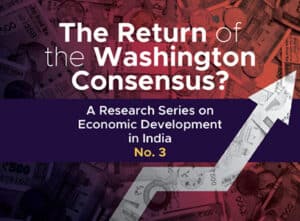
Charter Cities Podcast Episode 62: Kartik Akileswaran and Jonathan Mazumdar on Growth Teams and Structural Transformation
Many countries need radical structural transformation, specifically in more developing nations, and Growth Teams have made it part of their mission to empower developing countries to create jobs and grow their economies. Today, we are in conversation with the co-founders of Growth Teams, Kartik Akileswaran and Jonathan Mazumdar. The pair are here to discuss how their business is playing its part in creating economic stability in countries around the world. Our conversation begins with a breakdown of Growth Teams, how the company works, and why Kartik and Jonathan chose to build it. After taking a look at our guests’ professional backgrounds, we dive into the definition of structural transformation, assess its importance, discover why it’s so difficult to facilitate and brainstorm ways for governments to stand true to their promises of transformation. We also learn how Growth Teams get involved in government outreaches, how it’s doing things differently to achieve better results, the countries it is working with, and everything the business has planned moving forward.








